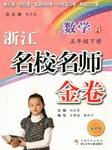题目内容
“Look, Mom! What a pretty fish!" said John to his mother.
John’s mother asked, “Where did you get it, John?”
“Frank caught it in the river. I went to the river to get some water and saw this little fish. Then I told Frank about the fish, and he ran to get his fishnet (鱼网). He put the net into the water, and caught the fish. I put it into this box,”
“Well, what will you do with it?” asked John’s mother.
“I will keep it, Mom,” replied John.
“But, my boy, it will not live in that box. You should put it back into the river.” replied his mother.
John felt sad and said, “I wish I could keep it. It is so pretty! May I put it into the pond?”
“No, John,” said his Mom, “you must put it into the river. A trout (鲑鱼) will not live in warm water.”
小题1:Who found the fish firstly?
小题2:What did John want to do with the fish?
小题3:Why can’t the fish live in the pond?
小题4:What do you think will happen next in the story?
小题5:We may read the article in a ______.
John’s mother asked, “Where did you get it, John?”
“Frank caught it in the river. I went to the river to get some water and saw this little fish. Then I told Frank about the fish, and he ran to get his fishnet (鱼网). He put the net into the water, and caught the fish. I put it into this box,”
“Well, what will you do with it?” asked John’s mother.
“I will keep it, Mom,” replied John.
“But, my boy, it will not live in that box. You should put it back into the river.” replied his mother.
John felt sad and said, “I wish I could keep it. It is so pretty! May I put it into the pond?”
“No, John,” said his Mom, “you must put it into the river. A trout (鲑鱼) will not live in warm water.”
小题1:Who found the fish firstly?
| A.John. | B.John’s mother. | C.Frank. | D.Frank’s mother. |
| A.He wanted to give it to Frank. |
| B.He wanted to keep it. |
| C.He wanted to put it back into the river. |
| D.He wanted to cook it. |
| A.Because its mother lives in the river. |
| B.Because the water in the pond is dirty. |
| C.Because it can't live in warm water. |
| D.Because it likes living in a big place. |
| A.John will put the fish into the river. |
| B.The trout will change into a big fish. |
| C.John will take care of it at home. |
| D.The trout will die in the pond. |
| A.Magazine | B.comic book | C.cookbook | D.storybook |
小题1:A
小题2:B
小题3:C
小题4:A
小题5:D
试题分析:这篇短文讲述的是John在河里抓了一条美丽的鱼,他想把它养在池塘里。但是他的妈妈告诉他,鲑鱼不能生活在温暖的水里,它必须生活在河里。他妈妈的意思是想让John把鱼放回到河里去。
小题1:细节理解题。根据短文第一句话“Look, Mom! What a pretty fish!" said John to his mother. 以及I went to the river to get some water and saw this little fish. Then I told Frank about the fish可知,John让他的妈妈看那条鱼,那是在他去河里取水的时候看到的,然后他告诉了Frank,故是John先看到了这条美丽的鱼。故选A。
小题2:细节理解题。根据短文中“I will keep it, Mom,” replied John.可知,当John的妈妈问他想对这条鱼怎样的时候,他回答说他想要保存这条鱼,即养这条鱼。故选B。
小题3:细节理解题。根据短文中的最后一部分May I put it into the pond?” “No, John,” said his Mom, “you must put it into the river. A trout will not live in warm water.可知,John问他的妈妈他能不能把鱼放进池塘里,他的妈妈说,必须把这条鱼放进河里,因为鲑鱼不能生活在温暖的水里。由此我们可以知道,池塘里的水是温暖的。故选C。
小题4:推理判断题。根据短文的最后可知,John的妈妈告诉他,鲑鱼不能生活在池塘里,因为池塘里的水的温暖的,它必须生活在河里。由此我们可以推断,John会把鱼放回到河里去。故选A。
小题5:推理判断题。这个题目问的是我们会在什么地方读到这篇短文,A选项是杂志;B选项是连环画;C选项是烹饪书;D选项是故事书。根据这篇短文的主要大意可知,这篇短文是讲了一个小故事,故应该选D。

练习册系列答案
 浙江名校名师金卷系列答案
浙江名校名师金卷系列答案
相关题目